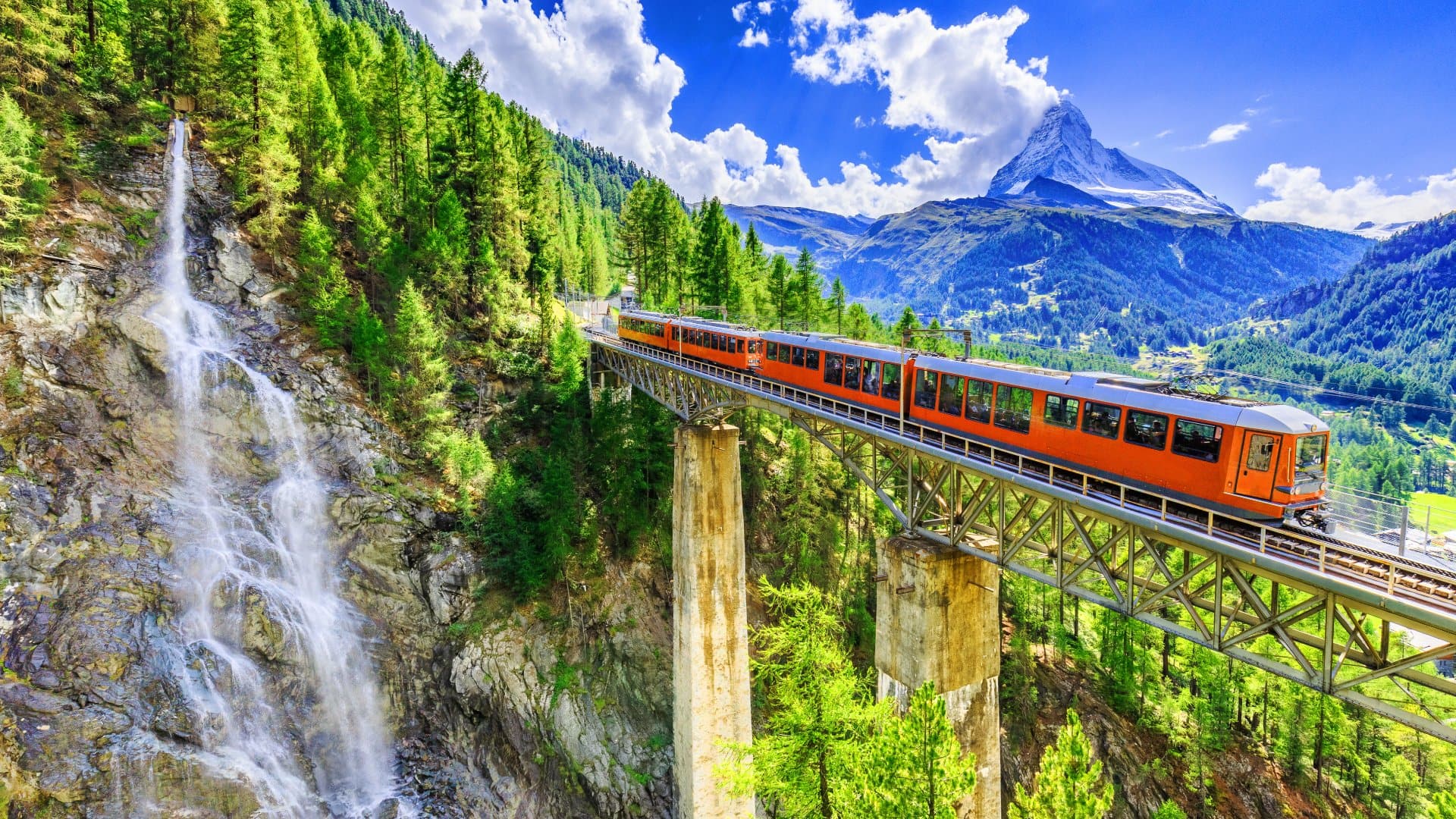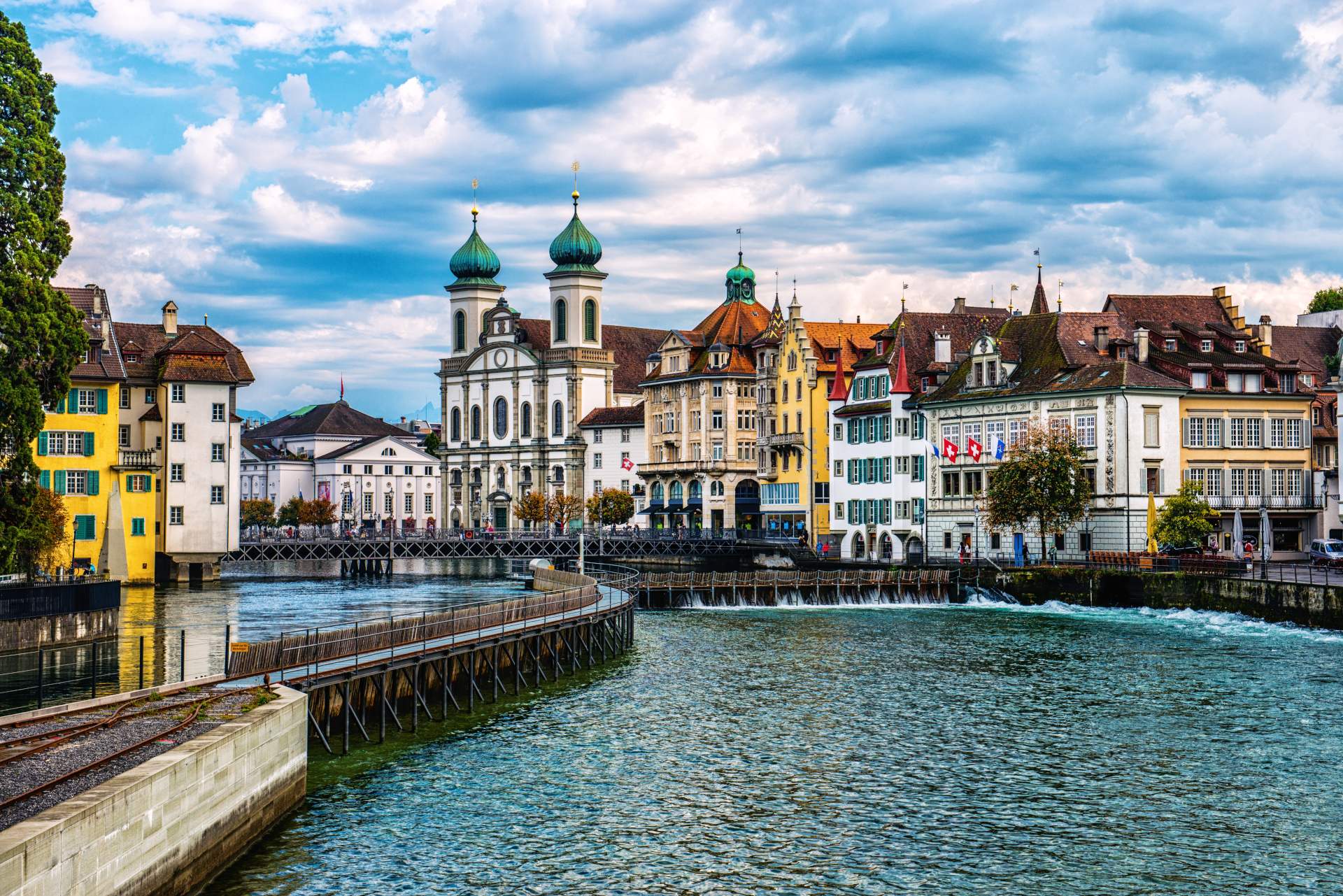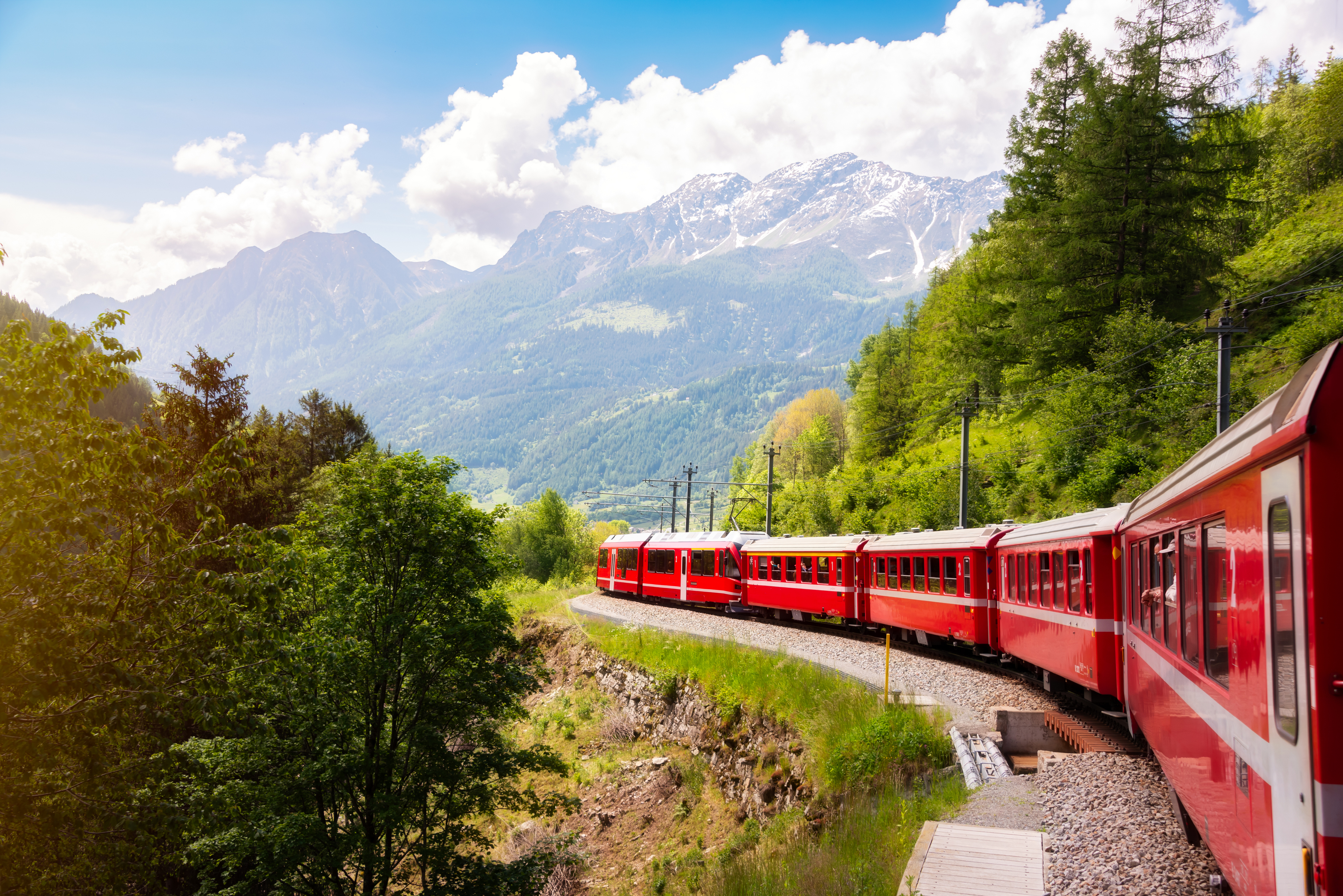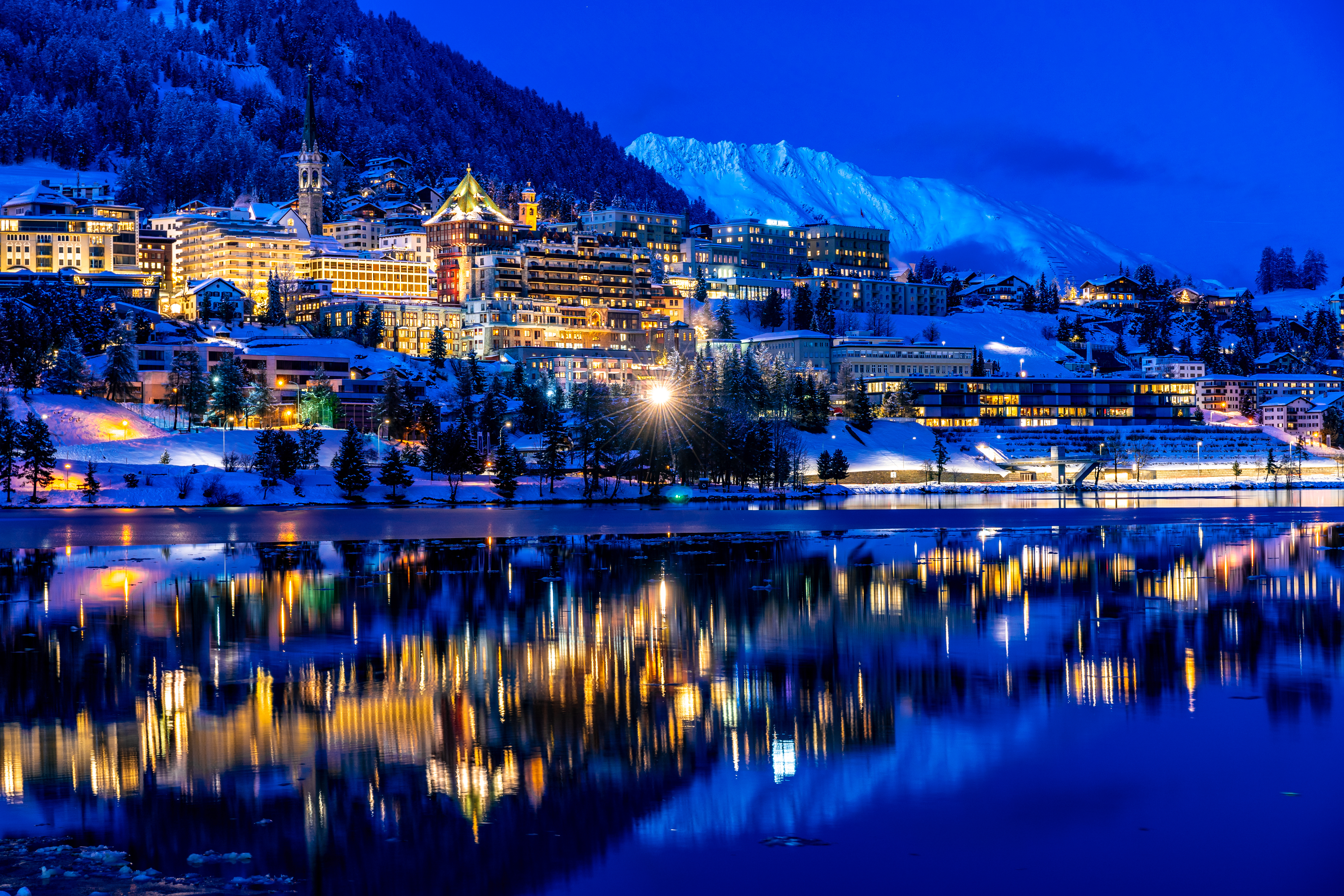To enter Switzerland, you generally need a passport valid for at least three months after your departure date, a valid visa if you’re staying longer than 90 days, and potentially proof of onward travel and sufficient funds, depending on your nationality. Citizens of non-EU countries must also apply for and secure electronic travel authorization (ETA) before arriving in the country.
Discover Tailor-Made Switzerland Vacations
Explore the majestic Alps, serene lakes, and vibrant cities on a dream trip to Switzerland.
Located in the heart of continental Europe, Switzerland may be a relatively small country, but it packs in an amazing array of attractions, from vibrant cities and quaint villages to breathtaking Alpine scenery. Whether you love the thrill of the slopes, hope to immerse yourself in nature, or need some R&R at an Alpine spa, Switzerland has it all.
Featured Highlights
- Riding the famous Bernina Express, Switzerland’s panoramic “glaciers to palms” railway
- Private visits with the cheesemakers of Gruyères and the chocolatiers at Maison Caillee
- Riding the cogwheel train to Gornergrat for unobstructed views of the Matterhorn
- Bespoke wine tours with a private sommelier at the Lavaux vineyards near Lausanne
- A window seat with a breathtaking view at Restaurant Crystal on the Jungfraujoch, known as the Top of Europe
Featured Switzerland Trip Ideas
A sensory journey through mountain peaks, crystal waters and lively Swiss townsBoasting one of the finest public transportation systems in the world, the country offers everyone from nature lovers to foodies myriad opportunities to indulge their passions with personalized world-class experiences. Whether your interests include riding through mountain passes on a luxury rail tour, biking or hiking along crystalline lakes, or feasting on rosti, raclette and fondue, Goway’s Destination Specialists are ready to craft your perfect Switzerland getaway.
Read More
European Vistas: Paris, Geneva & Milan
Milan, The Duomo, Geneva, Paris, Arc de Triomphe, Notre Dame Cathedral, Sacré Coeur de Montmartre, Eiffel Tower, and The Louvre MuseumGrand Train Tour of Switzerland: Iconic Rail Journey
Chapel Bridge and Swiss AlpsLucerne to Interlaken: Lakes, Valleys and Mountains
Chapel BridgeSplendid Switzerland & Glacier Express
Chapel BridgeThe Grand Swiss Rail Summer Adventure
Chapel Bridge, Zurich, and Rhine FallsGrand Train Tour of Switzerland: Winter Magic Tour
Swiss AlpsDon't see the
perfect trip idea?
Request a custom quote.
Turn your travel dreams into reality with Goway. Our customized vacations take travellers to all corners of the world.
What do Goway's travellers say?
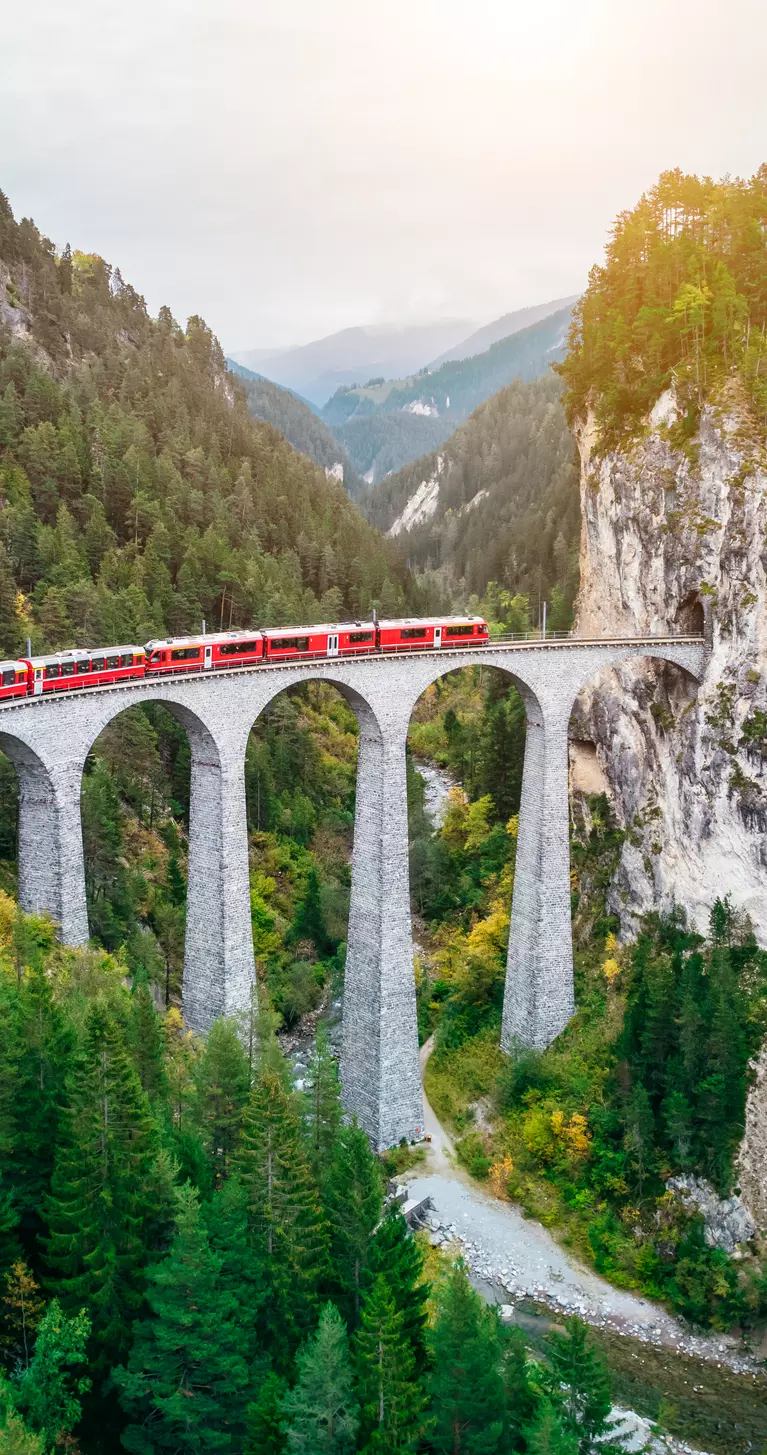
Get to know Switzerland before you go.
Best Time To Visit
Discover Switzerland's alpine allure, perfect for summer hikes or winter thrills.
Cold and snowy, winter in Switzerland is a paradise for skiers, snowboarders, and lovers of Alpine landscapes, with the country’s famous ski slopes and resort towns ready to indulge. During the Christmas season, the country’s towns and cities also play host to traditional Christmas markets, full of lights, unique crafts, warming foods, and lots of cider.
Destination Specialist Samantha Buckley details that "Winter and Summer are the best time to visit. Winter provides arguably the best scenic pictures, world-class skiing, and unique winter experiences. Summer provides some of the best hiking, and comfortable summer temperatures for touring"
During the spring and fall, the forests and mountains come alive with colour, making these so-called shoulder seasons an ideal time for hiking, biking, and nature-based vacations. With fewer crowds and lower prices, they are also a more comfortable and budget-friendly time to visit.
Summer in Switzerland sees an influx of tourists looking to take advantage of the warmer weather and such seasonal activities as windsurfing on the country’s many lakes or cycling tours of wine country. It is also the priciest time of year to visit.
Whatever the season, though, Switzerland’s charm, beauty, and attractions never disappoint. Learn more about the best time to visit the country and tailor your trip to match your tastes.
What do the experts say?
To make your trip that little bit more special, Goway can upgrade Swiss Travel Passes just for a day so guests can experience the panoramic trains in a higher class of service without paying the increase for their entire trip
Winter and Summer are the best time to visit. Winter provides arguably the best scenic pictures, world-class skiing, and unique winter experiences. Summer provides some of the best hiking, and comfortable summer temperatures for touring.
If you are looking for somewhere off the beaten track, then make sure you visit Bachalpsee. This stunning mountain lake located in the Bernese Oberland is one of the most picturesque locations in Switzerland
Switzerland experiences four distinct seasons, with generally mild summers and cold, snowy winters, but be prepared for unpredictable weather, especially in the mountains, where conditions can change rapidly.
Switzerland is a multilingual country, with four official languages: German, French, Italian, and Romansh.
Places To Go
Handcrafted journeys to our most popular places to visit in Switzerland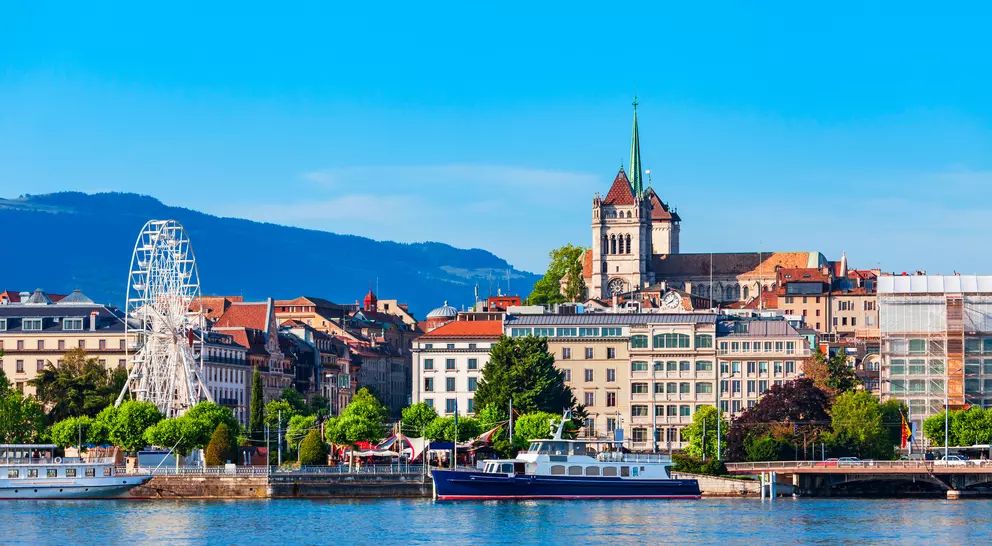
Geneva
Geneva is the second-largest city in Switzerland, nestled within the country’s French-speaking...
Geneva is the second-largest city in Switzerland, nestled within the country’s French-speaking region. It is a dynamic hub revered globally for its financial prowess and diplomatic prominence at the...
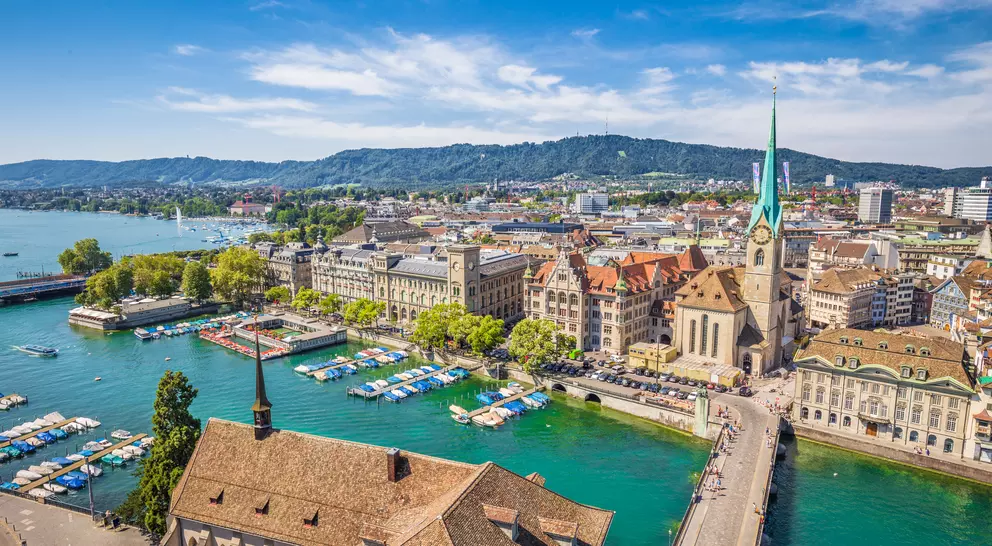
Zurich
Nestled along the northern edge of Lake Zurich in the north-central region of Switzerland, Zurich...
Nestled along the northern edge of Lake Zurich in the north-central region of Switzerland, Zurich is the country's largest city. Beyond its reputation as one of the globe's premier financial centres,...

Swiss Alps
At the crossroads of French, German, and Italian Europe, Switzerland has one feature setting it...
At the crossroads of French, German, and Italian Europe, Switzerland has one feature setting it apart from its neighbours: the Swiss Alps. OK, also cheese and chocolate, but no trip to Switzerland is...
Travel Styles
Explore Switzerland by Travel Type
Collections
Frequently Asked Questions
What are the rules to enter Switzerland?
How many days do I need to visit Switzerland?
You should spend at least seven days in Switzerland for a basic introduction, but 10 to 14 days is recommended for a more comprehensive experience, allowing for a relaxed pace and deeper exploration of key regions like the Swiss Alps, Lake Geneva, and cities like Zurich and Geneva.
Can I speak English in Switzerland?
English is widely spoken in Switzerland, although a word or two in the local languages will be appreciated. Common German or French phrases in Switzerland include grüezi or sali for hello, danke or merci for thank you, and bitte for you’re welcome.
Are the Swiss friendly to Americans?
The Swiss are generally welcoming of all foreigners, including Americans, with whom they maintain strong diplomatic and personal ties. Often described as polite but reserved, they prefer straightforward communication over gushing compliments and typically do not expect tips from tourists.
What is Switzerland famous for?
Switzerland is most famous for the Alps, scenic train travel, chocolate, cheese, and world-renowned timepieces.
Why is Switzerland very expensive?
The Swiss go to great lengths to maintain a clean, sustainable society that is fair to all. Measures supporting this may contribute to the expense of visiting the country, but affordable travel still abounds in Switzerland.
Why is Switzerland so special?
Switzerland is considered special by many because of its majestic mountain scenery and easily accessible tourist destinations. The country has a high standard of living and is eager to share its bounty and beauty with visitors.
What is the climate in Switzerland?
Switzerland experiences warm sunny summers and cold snowy winters. Temperatures are significantly lower at its highest elevations in the Alps.
Unlock more by subscribing to our newsletter.
With our newsletter, you’ll get access to regular communications that inspire you and help you explore the world your way.

